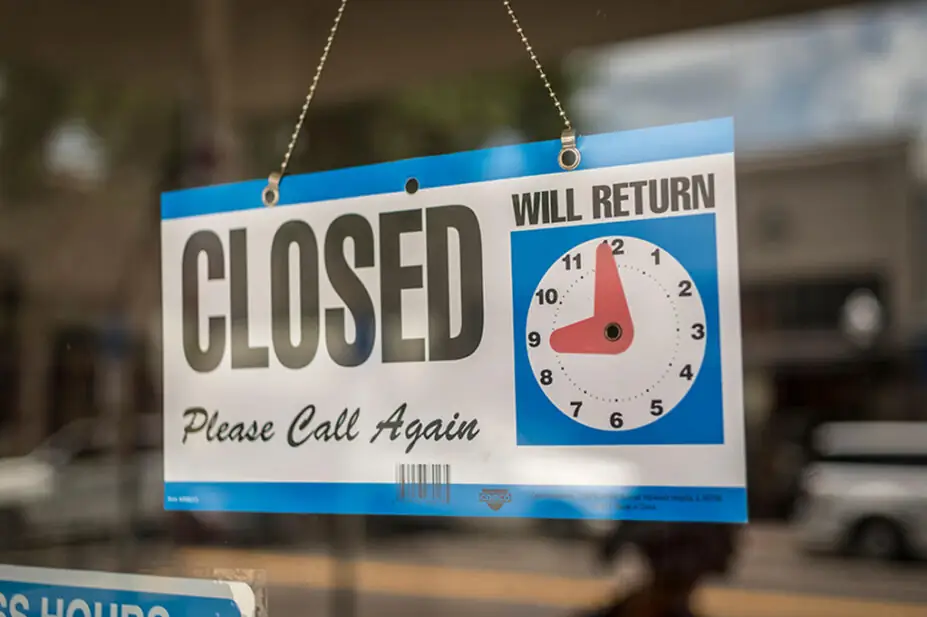
Rob Wilkinson / Alamy Stock Photo
Nearly 14,000 temporary pharmacy closures, resulting in 46,823 hours lost in pharmacy services, were reported across England in 2023, research has revealed.
The research was carried out by Healthwatch England, a patient advocacy committee within the Care Quality Commission, which collected data from integrated care boards (ICBs) on temporary community pharmacy closures.
The figures showed that there were 13,863 instances of temporary pharmacy closures between 1 January to 31 December 2023, with an average closure length of 3.7 hours.
Healthwatch England published its report on the research on 26 September 2024, which warned that “temporary pharmacy closures are adding to the deepening crisis in the sector”, with 436 permanent pharmacy closures recorded in the same year.
North East and North Cumbria ICB recorded the highest number of temporary closures (1,438) and hours lost (4,054), while Norfolk and Waveney ICB reported the highest number of hours lost per pharmacy over the year-long period, at 17.5 hours, when adjusting for the size of ICBs.
South East London ICB recorded the lowest number of temporary closures (70), while North West London ICB reporting the lowest number of hours lost (212.0).
The research determined that more temporary pharmacy closures were recorded in ICBs in rural areas.
ICBs with a higher proportion of people aged over 60 years had a higher number of hours lost per pharmacy.
Commenting on the report, Louise Ansari, chief executive of Healthwatch England, said: “Our research has shown that temporary pharmacy closures present a widespread challenge in England.
“This issue is having huge impacts on older people and is particularly acute in rural regions where people already have to travel further to visit their pharmacist.
“Staff shortages, the key driver of permanent and temporary closures, call into doubt the potential of Pharmacy First, meaning people can’t get the advice, care and medications they need and when they need them.
“Action must be taken to address staff shortages and unequal access. A national evaluation of pharmacy funding and the size, role-mix and distribution of the pharmacy workforce is necessary to improve planning of pharmacy services,” said Ansari.
In March 2024, an analysis by the Pharmaceutical Journal revealed that more than one-fifth of community pharmacies in England have scaled back their opening hours since 2022, raising concerns about access to the Pharmacy First minor ailments service, launched in January 2024.
At the time, Leyla Hannbeck, chief executive of the Association of Independent Multiple Pharmacies, said the reason for shorter opening hours is “simply that pharmacy owners must reduce all operating costs by as much as possible or go bankrupt under the current funding regime”.
Commenting on the Healthwatch report, Janet Morrison, chief executive of Community Pharmacy England, said: “This Healthwatch report is yet more evidence showing just how desperate the situation for pharmacies has now become.
“Community pharmacies urgently need their core funding to be uplifted to stabilise the sector, halt the trend of pharmacy closures, and allow pharmacies to keep doing what they do best: supporting local communities and the wider NHS.
Tase Oputu, chair of the Royal Pharmaceutical Society’s English Pharmacy Board, said: “These findings highlight the urgent need for sustainable funding and workforce planning to ensure patients are not left without access to medicines and support.
“Warnings of pharmacy closures must be taken seriously to ensure patients can continue to access a resilient pharmacy network.
Louise Edwards, chief strategy officer at the General Pharmaceutical Council, said: “The causes behind permanent and temporary closures can be complex and include financial, commercial, labour market and contractual factors. We urge everyone with a role to play to work collaboratively to reduce the number of pharmacy closures as much as possible.
Paul Rees, chief executive of the National Pharmacy Association said: “Community pharmacies act as the front door to the NHS. If people lose access to them, it will force more patients into the 8 o’clock scramble at their GP surgery, putting pressure on the rest of our NHS system.
“If the government wants to cut GP waiting times — and free up GPs to see patients with more serious conditions — it needs to invest in community pharmacy.”


